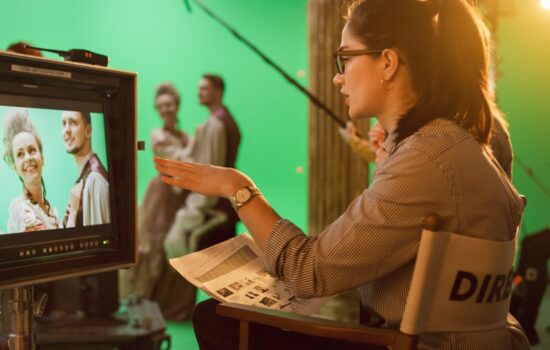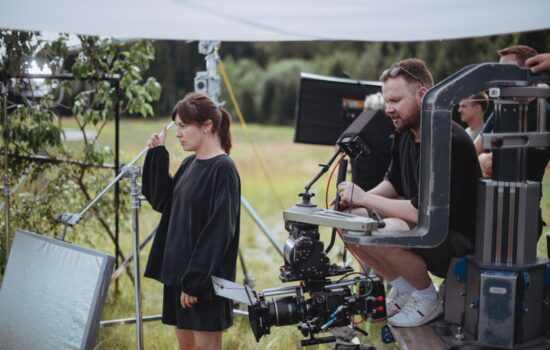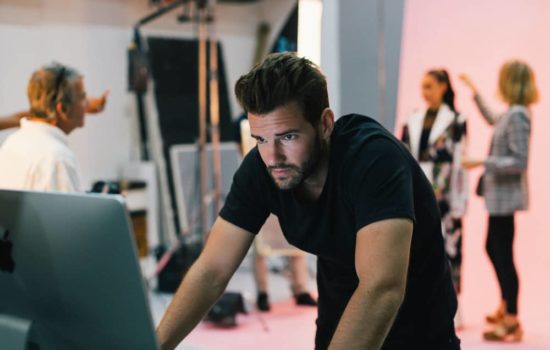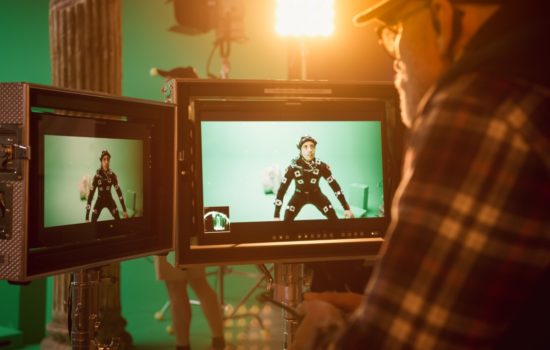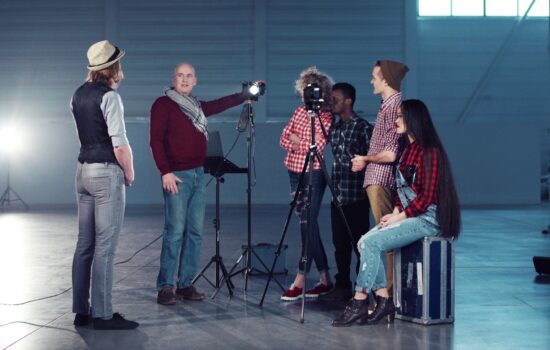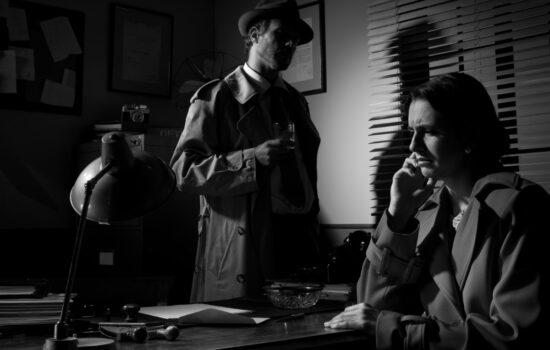Key PA

How To Become a Key PA
Career Description
Veteran Producer, Production Coordinator, and Production Assistant Rorie Dirk van Klaveren begins by explaining the oft-misunderstood word key: “There’s a key for every department in production; key is simply a tier. There’s a department head, and they sit above the key. Below the key, is the best which is the highest position in the non-union side of the set.”
“On a television show, the Key Production Assistant (KPA) is in charge of wrangling a team of two or three Set PAs, the entry-level positions on the set. As they are non-unionized, Van Klaveren suggests, “It’s a role you do once or twice to figure out your next step.”
“You take charge of the team providing general assistance to all departments and cast, ensuring people have coffee and food, coordinating wardrobe and locking down the set by shouting, ‘Quiet please!’ and, ‘Picture’s up!’”
The KPA also runs the basecamp. This means making sure Background Performers and principal cast are in Hair, Makeup and Wardrobe on time, are set-ready and clock out at the end of the day.
“The KPA is the point person on the walkie-talkie for all Set PAs and they liaise all day with the Production Coordinator, taking on errands and solving problems for all departments”, Van Klaveren explains. “Tasks range widely, from getting up-to-date scripts to cast members to make sure people aren’t too hot or cold on set.”
In terms of the daily pace, he sets it out clearly: “In television, it’s fast, blasting through eight pages per day. In features, at two or three pages per day, the pace is slower but you’re managing much larger set-ups so the feel of the daily routine is different. Commercials can be hell, shooting seven pages and a ton of B-roll every day.”
The daily routine is demanding, says Van Klaveren. “The KPA tends to be first in, before the crew, opening up the stages and offices with the Production Coordinator. You make sure cast and crew have their breakfasts and coffees — caffeine is the life fuel of the set! At the other end of the day, you’re not far off the last one out.”
The KPA also develops close relationships with principal cast members over the course of a series: “KPAs can get very close to the cast, frequently trusted with lots of their personal day-to-day. For example, if they get ill and need to go to the hospital, they’ll want someone they trust to accompany them — that is often the KPA. They stay close and represent the show alongside those bigger assets.”
Van Klaveren points out the incessant turnover in the PA department, and KPAs have to manage those revolving doors: “PAs change a lot over the course of a show or shoot and KPAs need to stay on top of them. At one point, Titanic had over 1,000 PAs on the payroll…”
What is a Key PA?
The Key PA, or Key Production Assistant, is the person on set who is responsible for the entire Production Assistant department. This means communicating with all other PAs and making sure that each of them is successfully carrying out their assigned tasks.
Salary
The average annual salary for a Key Production Assistant is approximately $59,200. The salary range for a Key Production Assistant runs from $42,000 to $81,000.
“Everybody in the production world is considered a ‘day player’ in the budget — as such, you are paid for the days you work, nothing more,” explains Van Klaveren. Although daily rates for a KPA are set at the current minimum wage, there is no fixed monthly or yearly salary.
Van Klaveren does have positive news for anyone digging into potential earnings and perks for KPAs: “You do get paid legitimate, healthy overtime. After eight hours, it’s time and a half, and that happens a lot. After five days, any work beyond that is double time. Again, that’s not uncommon.”
He also points out that on-set PAs receive a lot of extra perks: “You get production health insurance at a great rate, three square meals a day (so very little food or drink shopping), and lots of swag — bikes, jackets, alcohol, t-shirts… the list goes on. Plus, when you work so much, you don’t spend any money.”
KPA jobs are meant to be entry-level jobs, a starting point to find the next step in the industry. As such, the earnings are set at a bare minimum; as Van Klaveren points out, “The only up-and-down in terms of your income is the amount of days you work in the year. Most of us in production work nine or ten months of the year.”
How much does a Key PA get paid?
Depending on the nature of the jobs they book and the volume of them in a given year, a Key PA can make close to $50,000 annually. As mentioned, though, that figure can fluctuate according to multiple factors such as experience, the budget of a particular production, and the frequency of jobs booked.
Hey, what do you think about trying our new Film Career HelperFilm Career Helper really quick? It’s totally free and could help get your career moving fast! Give it a try. It’s totally free and you have nothing to lose.
Career Outlook
Work never ends, phone calls never cease, emails never stop. “You’ll be out for dinner and have to take calls from cast members or the Production Coordinator and then leave. It’s taxing,” says Van Klaveren. KPAs clock off when it’s wrap, and normally get Saturdays and Sundays off, but Van Klaveren cautions that it’s fewer than eight hours sleep every night:
“You work with every department so there’s always something. Balancing life and work is very challenging indeed. The reality is hiatus is the only time you can call your own, when you get a couple of months off between gigs. That’s yours. When you’re on a show, there’s really no time for anything else. You’re always on set.”
What is Van Klaveren’s advice to deal with the work/life imbalance? “Be happy in your work. If your work makes you happy, you’ll be far less resentful of the pressures it exerts on you.”
Career Path
Van Klaveren clarifies that very few people stick with any kind of PA work for a decades-long career: “It tends to be a younger thing; even at the ‘key’ level, it’s really meant to be the beginning of a longer trajectory. It’s the finishing stage for an entry-level position.”
For the most part, KPAs are aiming to join the DGA (Director’s Guild of America). Van Klaveren lays it out: “For example, KPAs work on the production report at the end of the day — these hours count towards the DGA, thus racking up union hours. The goal is to work up to Second Second AD, then Second AD, then First AD, and then some look to step into directing.”
Van Klaveren explains that most KPAs remain on set throughout their career journey: “You aim to work with Directors in any capacity, some even becoming Script Supervisors or Cinematographers.”
As previously mentioned, the military is well-represented at the PA level on a television or movie set. Van Klaveren highlights other careers and professional worlds that offer transferable skills for anyone looking to take on a KPA job: “We get Event Planners, people from the construction business, even the hospitality industry — they all have project-oriented, people-facing aspects to them.”
Some of the studios such as Warner Bros. also offer internship programs. It’s worth keeping an eye on their production offerings for entry-level internships.
- Make sure you come with a healthy attitude. Just be pleasant, someone people can trust. It isn’t enormously complicated.
- It’s worth finding out if there are any productions in your area, walking into the production office and asking if there are any PA positions available. That’s how a lot of PAs get their first gig.
What does a PA do on set?
To rise to the position of a Key PA, most individuals start out as a PA. This means being in charge of the smaller yet very important tasks that help a production run smoothly. Some jobs of a PA might include moving equipment, running off-set errands, grabbing lunch, and generally being available for any other requests from the crew or cast.
Experience & Skills
Van Klaveren often compares PA and on set production work to military life. “A set is disciplined and structured like a well-tuned corps. I have seen a lot of entry-level PAs come from the military world, with people instinctively attracted to tight schedules, well-drawn hierarchies, and clear communication.”
Van Klaveren explains that there are no formal qualifications necessary, just basic office and communication skills. He asks, “Are you resourceful, do you have research capabilities? Can people trust you?” He makes it very clear that KPAs need to be people-focused: “You need to know if people are happy or sad, depressed or excited. You just need that basic empathy so you can be present, honest, appropriate and pleasant to one another.”
It’s clear that any type of onset PA work demands following through on the tasks you are allotted: “The more people trust you, the more responsibility you are given and you work your way up the ladder. The most important thing in this business is to answer your phone, complete your tasks and be trustworthy — it’s the simple stuff that gets you very far. Also, wear comfortable shoes and sunscreen!”
Positivity here is crucial: “Just go with the flow, stay positive and try to be a decent human being. The reality is most PAs don’t last very long — it’s extremely competitive so they either move up or, if they’re not enjoyable people to be around, there are plenty of others ready to step into their shoes.”
Being late is the death knoll for any PA: “I’m always surprised how many people have bad attitudes and turn up late and unprepared,” laments Van Klaveren. He explains: “The per-minute cost of a one-hour television show is around $200. That’s more than the daily rate for a KPA. If you turn up one minute late, you aren’t actually worth what you’re being paid.”
Education & Training
Although there are a couple of specific training programs to look at, Van Klaveren says that PA work is more about basic, well-thought-out communication than anything else: “Is there training for having a watch, asking questions, keeping notes, knowing the plan, taking and fulfilling orders? I think life itself is training enough.”
For Van Klaveren, the recipe for success as a KPA is simple: “Be open in your communication, exercise common sense and, above all, be nice.”
Van Klaveren’s first job as a PA came when he walked into the production office for a feature shooting in his town, asking for a job on set. “When it turned out the Second AD shared my love for jazz, he gave me a shot. I had no idea what I was doing but I was willing to learn.”
From there, in his first year, Van Klaveren learned all the ropes, eventually loading clapper, working in costume, grip, and electric even set decoration and props. “I asked a ton of questions and did a lot of listening. That is key, and it’ll help you understand the workings of other departments as you progress.”
As for those training programs, there aren’t many, but Van Klaveren recommends checking out PA Bootcamp, a two-day blast of PA preparation that gives you a taste of the discipline required.
“Film schools do units on PA and entry-level production work but there’s nothing like real experience to get you up to speed. Get on as many sets as you can and be present, aware and focused. And stay off your smartphone — that will kill your productivity and your career.”
Additional Resources
The goal for most KPAs is to join the DGA, but all PA jobs are non-union. Van Klaveren adds, “There are some loose Coordinator and Producer groups on Facebook — they are worth seeking out, at least to get a feel for the industry. Other than that, it’s a matter of knocking on doors and asking for a job. Be bold, be nice and people will give you a shot!”
FAQ
What is the single biggest suggestion you would give to someone wanting to get into this career?
“At the beginning, say yes (mostly!) Once you get more experience under your belt, learn when to say no!”
What’s the #1 mistake people make when trying to get into this career?
“Don’t choose this career because it’s Instagrammable, for the social currency, the mystery. It’s very hard work and it will be disappointing. But if you enjoy it for its utility as a jumping off point, then it’s right for you. Don’t let it swallow you up.”
What is the question people should ask about this career but rarely do?
“Should I consider a PA job in post-production? Post is growing rapidly — it really is the future of entertainment.”
If you could describe in one word what makes you successful, what would it be?
“Happy. I am and always have been happy doing my jobs. To me, that is success.”
Sources

Rorie Dirk van Klaveren
Rorie Dirk van Klaveren has worked in episodic television and feature film production for over 20 years. He began his career working on the feature films SLC Punk, The Way of The Gun and Drive Me Crazy after attending the film & music programs at the University of Utah.
Relocating to Los Angeles in 2000, Van Klaveren began working as an Associate Producer and Production Coordinator for many major Hollywood studios and networks such as 20th Century Fox, Paramount Pictures, and Warner Bros. Television.
He went on to be a part of the Oscar-nominated film Running With Scissors, FX’s Emmy-winning TV series Nip/Tuck and TNT’s flagship and ratings hit Rizzoli & Isles. Independent features and short films include 4 1/4, The Introduction, Summer Solstice, and Restraint, working as a Creative Producer and Picture Editor — many have been selected and awarded throughout the years by several national and international film festivals.
Van Klaveren’s experience and skillset make not only for a seasoned veteran but also someone who delivers through his multi-faceted expertise in the motion picture production process.
Van Klaveren is also an accomplished musician of over 30 years — he has produced and recorded multiple studio albums and had several songs featured in various television series, commercials, and feature films. He’s currently the Drummer for the musical group INVERTA.
References
- 1Multiple. "Key Production Assistant Salaries in United States". Glassdoor.com. published: Apr 3, 2018. retrieved on: Dec 12, 2019
